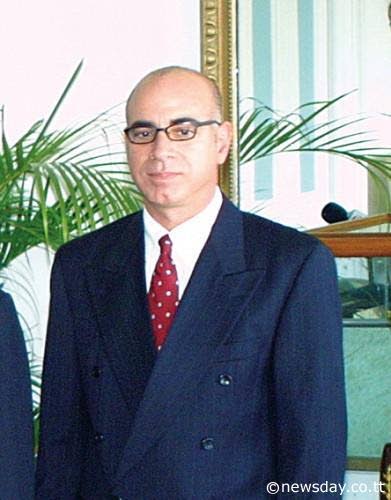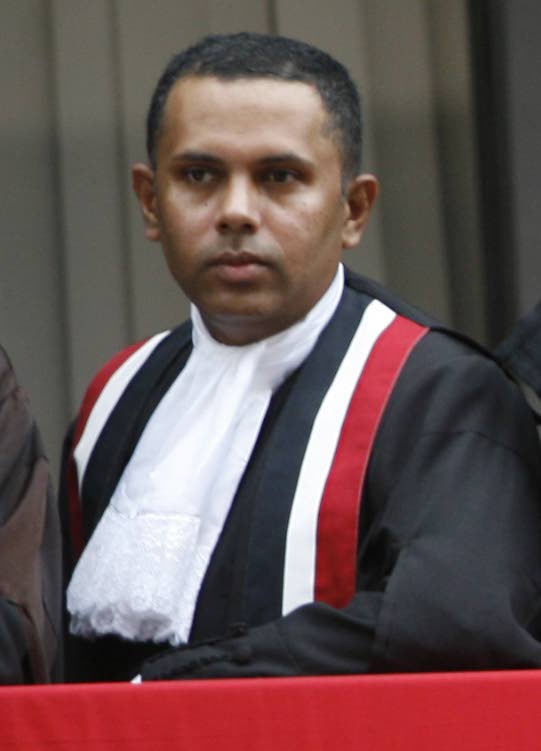Appeal Court to rule on deportation of Venezuelan girl, 11

THE COURT of Appeal is expected, on Tuesday, to deliver a decision in an appeal against a judge’s ruling which paved the way for the authorities to deport an 11-year-old Venezuelan girl who was part of a larger group which illegally returned to TT last month.
Justices of Appeal Ronnie Boodoosingh and James Aboud, at the end of a virtual hearing on Monday, said they will give their decision on Tuesday.
They have been asked to find the December 1 ruling of Justice Frank Seepersad was fundamentally flawed when he dismissed the application filed on the girl’s behalf in which she sought to prevent the authorities from deporting her until her claim for constitutional relief was determined by the court.
Attorney Gerald Ramdeen, who represents the girl, said in the judge’s 33-page decision, delivered 75 minutes after he heard submissions, did not assess the risk of injustice on the injunction issue and did not apply the proper test in determining if interim relief should be granted.
Ramdeen said the judge was not permitted to make the findings on the application of TT’s refugee policy or change of one, without it being tested at a trial.
He also said it was not an application by all of Venezuela, but an 11-year-old girl who has been recognised by the UN Refugee Agency (UNHCR) as an asylum seeker by virtue of her mother’s application. The child’s mother is an asylum seeker but not a holder of a government migrant registration card.
Ramdeen said somehow there was the impression that a decision by the court will open the doors to all who are seeking asylum or refugee status but told the judges, in this case, it was only limited to the child and those who are considered asylum seekers having invoked the procedure recognised by the State for the purpose of seeking asylum.
“The court has to be careful not to pronounce on policy and law before it is determined at a trial,” he argued.

Ramdeen also said the judge raised issues that were not before him. He also argued it was wrong to attribute blame to the child for the mother’s actions. He also submitted that the judge failed to distinguish between people who enter TT illegally and those seeking asylum.
In addressing the judge’s concerns of covid19 and migrant crisis, Ramdeen said it was dangerous to apply a broad-brush approach to the child’s application, adding that there was nothing preventing illegal migrants from suffering sanctions for illegally entering TT, but the State was not entitled to breach the Constitution and take away protections under it.
He asked the court to allow the child to prosecute her application for asylum. He said even if there is a change in the policy on refugees and asylum seekers, a court had to determine at trial if the child was entitled to the protection of the law afforded by it, having engaged it, even if it going to change.
The child was part of a group of mostly women and children who returned to Trinidad on November 22, two days after they were escorted out of TT’s waters by the Coast Guard.
In resisting the appeal, Senior Counsel Fyard Hosein, who represents the Attorney General, the Chief Immigration Officer, and Chief of Defence Staff, admitted that not all the submissions put before the judge were reflected in his judgment. He referred the judges to the statements by the Prime Minister and National Security Minister which negatived the 2014 draft policy on refugees and asylum seekers.
He also introduced evidence received from coast guard intelligence surrounding the group’s return to TT, including the sabotaging of their boat engines, cutting fuel lines and keeping telephone contact with people in Trinidad.
Hosein pointed to the position of the minister who held that because of the covid19 crisis in TT, anyone who entered TT without an exemption would be deemed “undesirables.” He said the State did not intend to treat people in an inhumane fashion, but pointed to the several breaches of immigration and covid19 regulations, by the child and the group that entered TT on November 22.
He said neither the child nor anyone else who enters TT illegally, have a right to remain here as an asylum seeker or refugee since there are no domestic laws that give them that status.
He accepted that TT was a signatory to the 1951 Convention on refugees and asylum seekers, but reminded that it has not been integrated into domestic law.
“They are not asylum seekers or refugees. They are economic migrants and we have no law that says refugees or asylum seekers have protection here.
“The UNHCR cannot determine if someone is a refugee or asylum seeker,” he said. Of the draft 2014 policy, Hosein said it never conferred rights on anyone so neither the child nor anyone else, can claim a legitimate expectation that they can come to TT to seek refugee status.

He said any legitimate expectation was negated by the ministerial policy on entry into TT during the covid19 period, coronavirus regulations and orders under the Immigration Act which deems persons who enter illegally as “undesirables.”
He said the child had no cause of action in law before the court for any relief to be granted.
“Does she have refugee or asylum seeker status? There is no law in TT. The UNHCR cannot afford someone the status as an asylum seeker or refugee. Ministers have repeatedly said there is no status of refugee or asylum neither can the UN grant that. That doesn’t amount to any legitimate expectation. You can’t have a legitimate expectation unless you have an unequivocal right,” he said.
He added: “There is no fact to be determined on the issue of the Immigration Act; none on the ministerial powers to deem them undesirables; and no fact that the 1951 Geneva Convention on refugees and asylum seekers is not part of domestic law, so no one can claim to be an asylum seeker or refugee.”
He said the UN convention did not give an absolute right and there was no law that said the child was entitled to stay by virtue of an application before the UNHCR. As he urged the judges not to become emotional over the issue, Hosein reminded of the coronavirus pandemic, adding, “ It can’t be that a Venezuelan child is given preference over a local child when they have breached the laws of the country.” He said citizens were required to get exemptions to enter TT. “It is a question of law and the court must take into consideration the consequences to flow from any decision it makes,” he said.

Comments
"Appeal Court to rule on deportation of Venezuelan girl, 11"